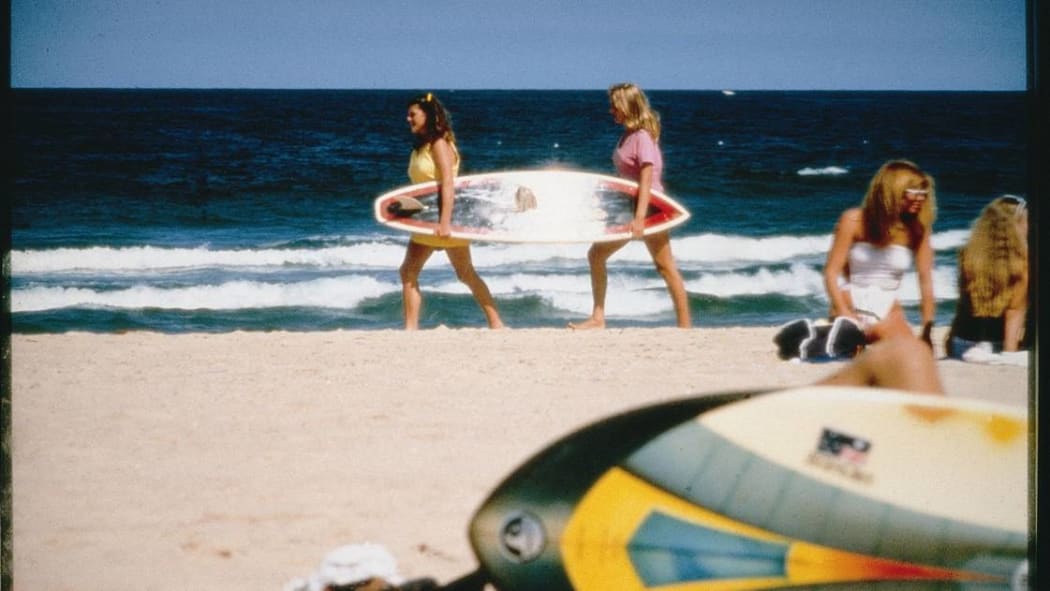"What you got that for? Chicks don't surf!" So goes the final scene of the 1980s classic film Puberty Blues.

Nell Schofield and Jad Capelja in a scene from Puberty Blues Photo: Youtube
Things have come a long way since then, yet women are still fighting to negotiate space alongside their male peers in action sports such as surfing, snowboarding, BMX and mountain biking.
Academic Rebecca Olive from the University of Queensland has just co-edited a new book Women in Action Sport Cultures - Identity, Politics and Experience.
Dr Olive told Nine to Noon in the past women faced jibes and insults from men out on the waves, and were told, for example, that women ‘should not be surfing’ and to ‘get back into the kitchen’.
These days women are more likely to experience subtle sexism.
“That’s where my research started … what’s it like now out in the water? And what I found is that it’s a bit more complicated than that.
“A lot of men are actually incredible supportive of women in the line-up, and encourage them to come out, to take off on waves.
“[And] the effect of that, what is more subtle … is that sometimes it can feel a bit too supportive, it feels a bit patronising because you still feel like you’re not quite good enough to be there when someone’s always giving you waves or pointing out ‘that was a really good wave’, because it ends up feeling like a good wave for a girl.”
However, things are much better for women now, she says, and huge numbers of them are taking up action sports.
But, Dr Olive says, there are still fewer women than men participating in those kinds of sports, and for all sorts of reasons. For example, the early surfboards were very heavy.
“[Women were seen] As less strong, as less performance driven, as less capable, as really weak and secondary,” she says.
And as women are culturally, historically and economically at a disadvantage, the opportunity for women to participate still lags behind their male counterparts.
“It is going to take time to make up that generational difference in access to resources and funding and opportunities.”

